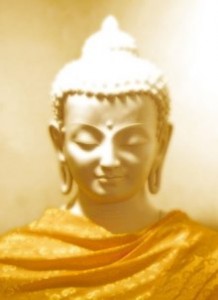
Those who know the true to be true and the false to be false, they attain the supreme goal, for they pursue right desires and correct views. (Dhammapada)
…it is not sufficient to be able to distinguish what is right from what is wrong. At first sight this seems to be the most difficult point. It is quite obvious that if everyone had to find it out for himself, it would be a very long work; you can pass your whole life going through innumerable experiences which little by little will enlighten you as to what is right and what is not.
Therefore it is easier to rely on someone who has done the work before you and whom you have simply to ask, “Is this true? Is that false?” Evidently, that offers a great advantage, but unfortunately it is not always sufficient; for if you have the desire that things should be in a certain way and that what you prefer should be right, then you are not always ready to listen to good advice.
The last sentence, “for they pursue right desires”, which seems to be a commonplace, is perhaps the most difficult part of the problem.
In this book, in this teaching, there are short sentences that appear so simple. If you read without sufficient reflection, you tell yourself, “But it is self-evident, you recognise as true what is true and as false what is false, what does that mean then?” But first of all it is not so easy to distinguish what is true from what is not, then to recognise, that is to say, to admit that a certain thing is true; and above all it is more difficult still perhaps to recognise that a certain thing is false.
In reality, in order to discern exactly what is false requires such sincerity in the aspiration, such resolution in the will to be true that even this little phrase “to know the true to be true and the false to be false” means a very considerable realisation. And the conclusion, “they attain the supreme goal” is a great promise.
There are teachings which say that one must have no desire at all; they are the ones that aim at a complete withdrawal from life in order to enter into the immobility of the Spirit, the absence of all activity, all movement, all form, all external reality. To attain that one must have no desire at all, that is to say, one must completely leave behind all will for progress; progress itself becomes something unreal and external. But if in your conception of Yoga you keep the idea of progress, and if you admit that the whole universe follows a progression, then what you have to do is to shift the objective of desire; instead of turning it towards things that are external, artificial, superficial and egoistical, you must join it as a force of realisation to the aspiration directed to the truth.
These few words, “they pursue right desires”, are a proof that the teaching of the Buddha, in its essence, did not turn away from the realisation upon earth, but only from what is false in the conception of the world and in activities as they are carried on in the world. Thus when he teaches that one must escape from life, it is not to escape from a life that would be the expression of the truth but from the illusory life as it is ordinarily lived in the world.
Sri Aurobindo tells us that in order to reach the Truth and to have the power of realising this Truth you must join the spiritual consciousness to a progressive mental consciousness.
And these few words certainly prove that such was the original conception of the Buddhist teaching.
The Mother





